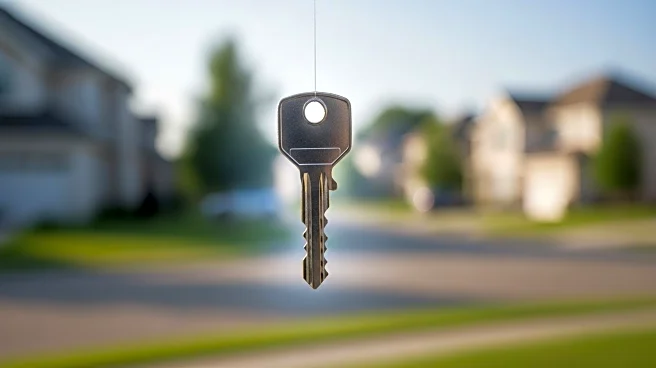What is the story about?
What's Happening?
In the current U.S. housing market, buyers are increasingly walking away from deals after making offers, reflecting a shift in market dynamics. This change is characterized by a more selective approach from buyers, who are no longer pressured to make quick decisions due to fear of missing out. Despite increased inventory and subdued buyer activity, homes that are well-priced and have few issues continue to sell quickly, indicating ongoing competitiveness. Sellers, however, are becoming less willing to negotiate, resulting in a rise in delistings and a higher rate of deals falling through. This new reality requires both buyers and sellers to adapt to the evolving power dynamics in the market.
Why It's Important?
The shift in the housing market dynamics is significant as it alters the traditional buyer-seller relationship. Buyers now have the luxury of being selective, which can lead to more stable and satisfactory transactions. This change impacts sellers, who must adjust their strategies to accommodate a more discerning buyer pool. The increased rate of deal cancellations could affect market stability and pricing strategies, potentially leading to longer listing times and adjustments in home values. Real estate professionals and stakeholders must navigate these changes to ensure successful transactions and market health.
What's Next?
As the housing market continues to evolve, both buyers and sellers will need to adapt to the new dynamics. Sellers may need to reconsider their negotiation strategies and pricing to attract buyers who are more cautious and selective. Real estate agents and industry professionals will play a crucial role in guiding clients through these changes, ensuring that transactions align with the new market realities. Monitoring these trends will be essential for predicting future shifts in the housing market and preparing for potential impacts on home values and sales volumes.
Beyond the Headlines
The current shift in the housing market reflects broader economic and societal changes, including increased financial caution among consumers and evolving expectations for homeownership. This trend may influence long-term housing policies and economic strategies, as stakeholders seek to balance market stability with consumer needs. The psychological shift among buyers, who now prioritize alignment with personal expectations over rapid decision-making, could lead to more sustainable homeownership and satisfaction.















